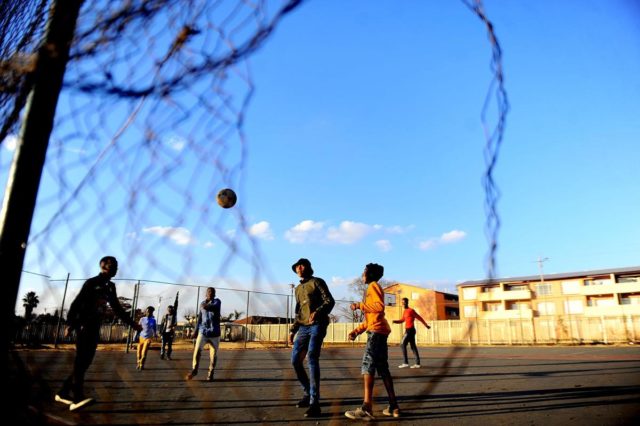WHEN we set out at the beginning of March to discuss the implications of the impending Covid-19 crisis on our operations and how this will affect children, we had a very narrow view of the future. Like everyone else we were waiting for the storm to blow over. Little did we know how this would change the way that we work and most importantly the way that children experience the world.
Save the Children’s task as a child rights organisation is to be the voice for and with children. We needed to hear from children on how this has affected their lives.
To understand and respond to children’s realities with little direct contact during the lockdown, we embarked on a process of speaking to children about their worries, their needs and how we can best communicate with them.
We found out that children experienced this new reality as extremely stressful and uncertain.
Children may not be among those who are flagged as high risk in the Covid-19 pandemic, but they will still bear a considerable burden of trauma and economic fallout during and post Covid-19.
Using a database of our existing beneficiaries, we contacted 391 adults and 111 children telephonically. Children were over the age of 12 years and coming from both rural and urban environments across the four provinces of KwaZulu-Natal, the Free State, Gauteng and Limpopo. The effect of the changes that Covid-19 brought was telling in the way that children described what they thought about the pandemic and the lockdown.
Overwhelmingly the results from the assessment indicate that the pandemic has hit children very hard. They are sad and worried. When asked how they were feeling, the vast majority of children (84%) reported feeling mostly sad and 79% of children felt mostly stressed.
“The lockdown is hard on the children because they are missing school and cannot learn (no access to the internet). The community is struggling, many people are staying in one room (overcrowding). Children who can study, cannot focus because of the overcrowding. Some families cannot afford food right now because there is no income. Children are starving. The social grants are not enough to feed children who are home all day,” said 16-year-old Pearl Mhlaba*.
Twenty-one percent (21%) of children required psychosocial support to deal with anxiety, stress, feelings of uncertainty and loneliness. Children are anxious about being able to cope with their schoolwork and how safe they will be at school when they go back. While not able to go to school, the main issues children raised was the lack of access to the internet and data, and at times electronic devices, to access online content for learning.
However, children also required support for learning in the form of more information on how to keep up with their studies, guidance from adults and peers while studying, and quiet places for them to learn better. 30% of children indicated that they required access to the internet and 23% required academic support.
Uncertainty around their education raises many questions for them: Will the curriculum change for 2020? Will children be screened at school? When will schools reopen? Will we be given credit for the time lost during the lockdown? What measures will be in place to protect children in school? When will this end?
This reflects children’s anxiety about their education and uncertainty about the future.
Sadly, 67% of children do not have anyone to talk to about their concerns. Children need information directed at them to help them understand how their educational needs will be met.
79% of the children were also very worried that Covid-19 would make them sick. In contrast to adults where only 45% indicated they were concerned. The questions children ask adults reflect just how anxious the risk of infection is making them. They want to know whether they will be infected, the severity of the pandemic, and how at risk are children. Young children ask their parents whether they will die and if they will be removed from their home if infected.
But children also understand the broader implications of the pandemic and the lockdown. That people would lose income and become more vulnerable under these new circumstances. In fact, they have already begun to experience it. Eighty percent of children were very worried that the pandemic would affect their family’s finances
Covid-19 and the measures that have been put in place to control it has disrupted nearly every aspect of children’s lives, their health, development, learning, behaviour and security. And while we focus on the physical and educational impact in our responses, we should not forget the deep and lasting implications on children’s mental health and psychological well-being.
* Names have been changed to protect the identity of the participants.
** Suzanne Wessels is director of Planning, Monitoring, Evaluation, Accountability & Learning at Save the Children South Africa.








